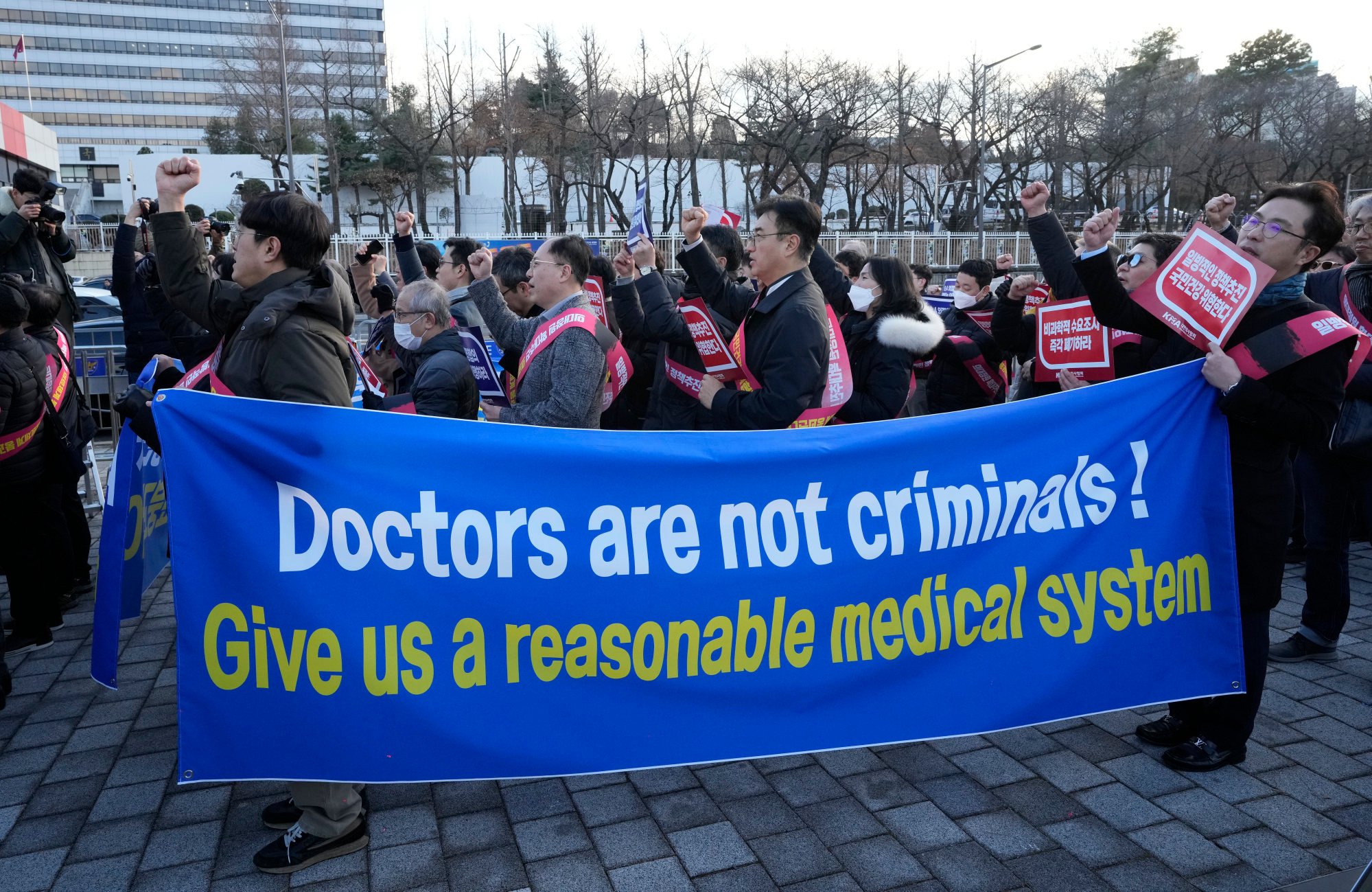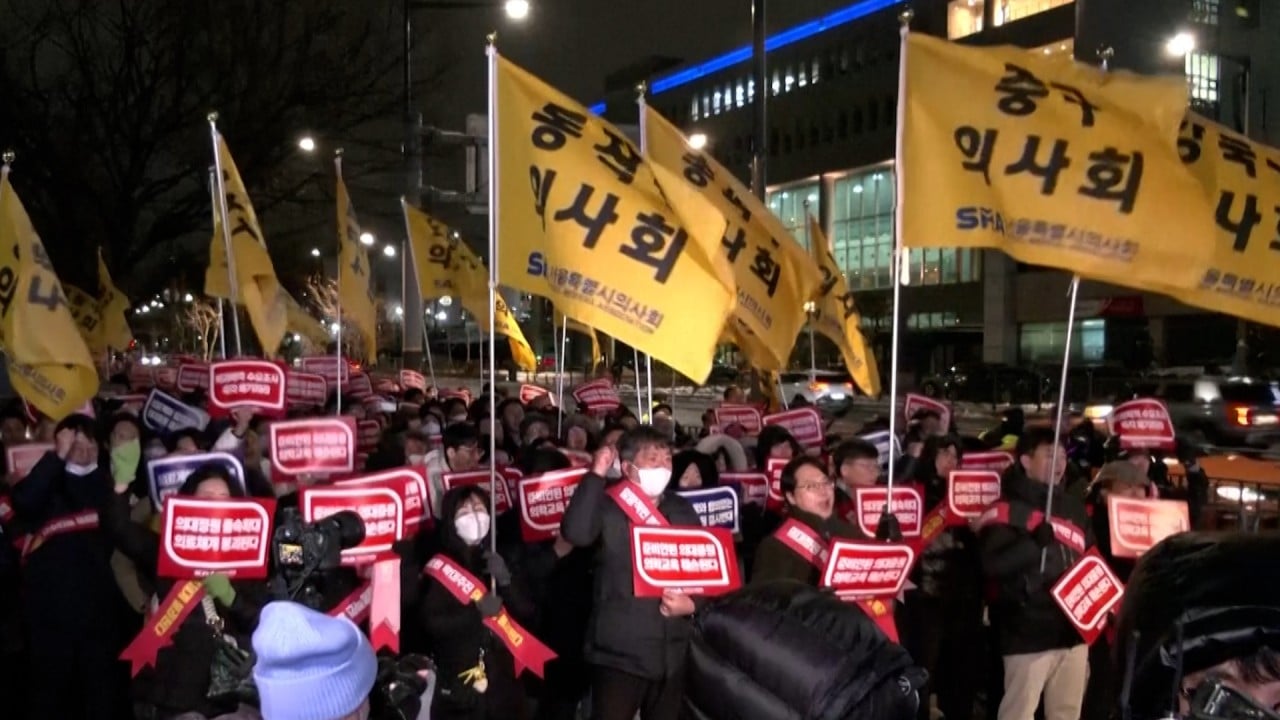South Korean government to adjust medical school quotas in bid to end walkout, following crushing election defeat
Han said the government had made a “bold decision” amid a lack of consensus in the medical community, mounting concerns over the walkout and the pressing need for universities to finalise their academic calendar for next year.
“By proactively accepting the deans’ recommendations, we’re hoping to create a chance to protect medical students, normalise education and resolve the dispute,” he told a briefing.

President Yoon has been pushing to add more doctors as an integral element of his medical reforms, an idea that has strong public support amid a shortage of physicians outside the greater Seoul area and in essential medical disciplines including emergency care and paediatrics.
The protesting physicians have said that the healthcare sector was not short of doctors, and the government’s plans fall short of addressing pay and working conditions properly.
The stand-off emerged as a key issue in last week’s legislative elections, in which Yoon’s ruling party failed to regain a majority in the opposition-controlled parliament.
Yoon initially had been emboldened by opinion polls showing South Koreans overwhelmingly supported the idea of adding more doctors, but some voters had started to blame him for refusing to show flexibility.
A Gallup Korea poll released on Friday showed that Yoon’s approval ratings had slumped to 23 per cent, down 11 percentage points from three weeks ago and the lowest since he took office in May 2022.
Yoon’s office did not immediately respond to a request for comment on the change in the medical reform plans, but when asked about the ratings, said the government was making its utmost effort to reflect the people’s wishes in state affairs.
